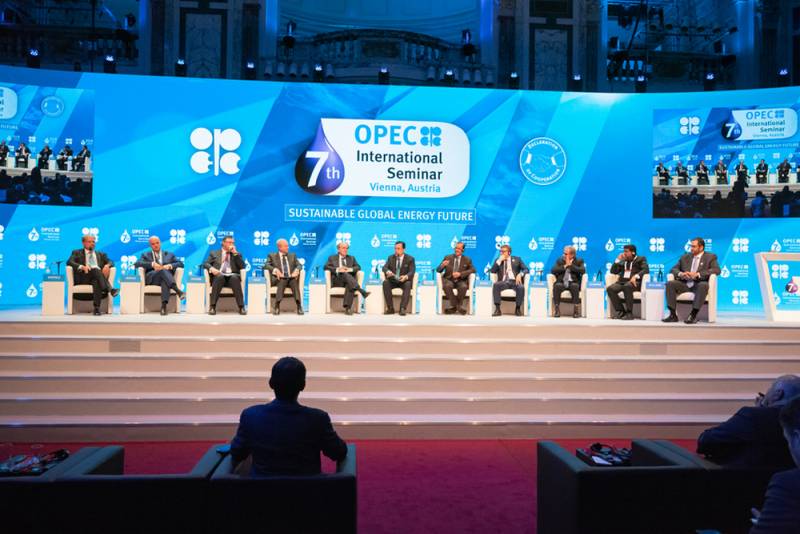Even Russia is against: an important OPEC+ meeting has been postponed due to the behind-the-scenes game of Saudi Arabia
Official confirmation has been received that the OPEC+ meeting has been postponed to November 30, although it was supposed to take place from November 25 to 26. This important meeting was to be marked by Riyadh's announcement of an additional shake-up of the market with new powerful cuts. Such willfulness irritates many members of the organization, including Russia, which previously often became a secret partner of the Middle Eastern supplier in a number of its decisive actions.
According to energy expert Javier Blas, there is a serious struggle within OPEC over production levels. And this is not the first time that, in order to achieve voting approval for its adventures, Saudi Arabia has used a maneuver to appease alliance members by revising their production quotas. Such internal “species regulation” of an influential member of an organization (or ousting) has occurred twice since 2020: once with Mexico and again with the UAE.
At the heart of the OPEC+ conflict is the question of who produces and how much. At the last meeting, held back in June, the UAE received a higher quota in a backroom agreement with Saudi Arabia. The rest lost their quotas. But the conflict of interests within the oil cartel has not yet been resolved.
At the moment, even Russia is against the decision to further reduce production by another million barrels per day, although Moscow has always supported Riyadh. As Russian Deputy Prime Minister Alexander Novak said, oil prices on the world market are “balanced and correspond to the economic level,” which translated into OPEC language means “no additional cuts.”
Russia does not need higher prices, since they will lead to an automatic bypass of the G7 price ceiling and anxiety in the West, which will try to prevent the sales route bypassing the restrictions that already exists. Moscow does not want such a scenario. In balancing the possibilities of obtaining a little more profit with possible problems, it is better to leave the current situation stable.
The desires of Saudi Arabia are clear - the kingdom vitally needs the highest possible prices for raw materials in order to cover the budget deficit and its expenses. To resolve the contradiction and convince partners in the organization and especially Moscow, Riyadh has only a few days.

Information